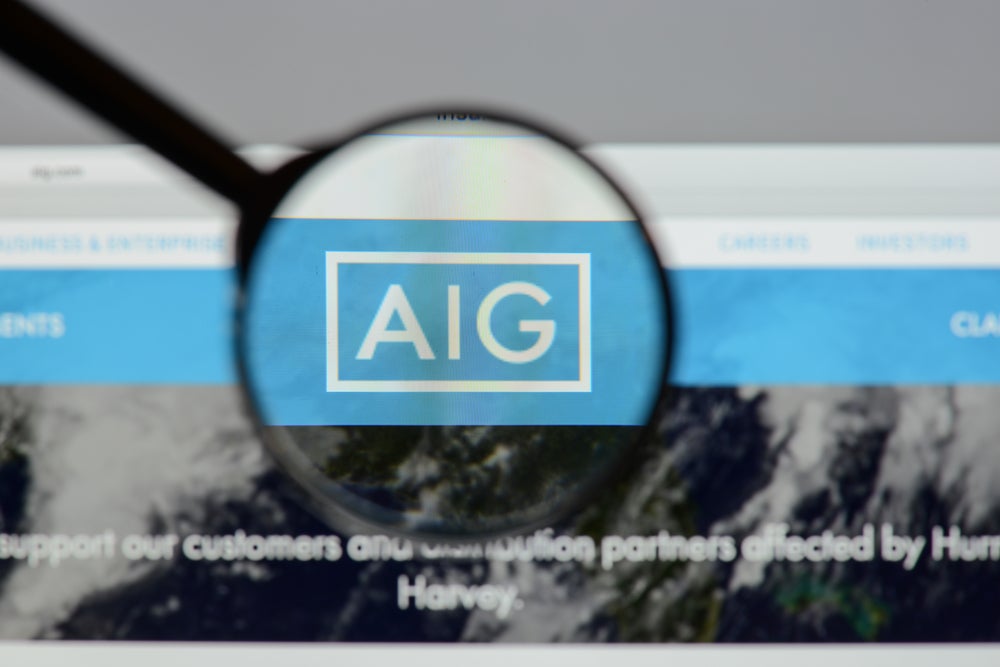surrounding its parent group’s financial woes, AIG Africa has
enjoyed yet another successful year. Indeed, far from stagnating,
expanding its three existing operations and moves into new African
markets are high on the agenda, the company’s newly appointed CEO
Peter Flint tells LII.
Despite the dire financial position American International Group
(AIG) landed itself in, it’s still pretty much business as usual
for its operating units around the world, including its three in
Africa: AIG South Africa, AIG Uganda and AIG Kenya. All separate
corporate entities, they form the AIG Africa region, part of AIG’s
American International Underwriters (AIU) unit which operates ten
regional headquarters overseeing businesses in 80 countries.
Not that doing business as usual has been easy Peter Flint, the
newly appointed regional president and CEO of AIG Africa, told
LII. Flint took up his new appointment on 3 October
following his transfer from China where he held the position of
president and CEO of AIU’s general insurance operations. Flint
replaced Joost Vink who has taken up a new role as country manager
of AIG’s German operations.
Speaking from his new base in Johannesburg, South Africa, Flint,
who has been with AIG for 16 years, conceded: “By association we do
have a parent company. I have spent some ten weeks explaining to
customers that we are at arms length from AIG, separately
capitalised and separately regulated.”
Flint speaks enthusiastically about the AIG Africa region he now
heads.
“I have inherited a great team of professional people,” said
Flint. He adds that despite the uncertainty surrounding AIG, the
Africa region enjoys “strong business retention.”
How well do you really know your competitors?
Access the most comprehensive Company Profiles on the market, powered by GlobalData. Save hours of research. Gain competitive edge.

Thank you!
Your download email will arrive shortly
Not ready to buy yet? Download a free sample
We are confident about the unique quality of our Company Profiles. However, we want you to make the most beneficial decision for your business, so we offer a free sample that you can download by submitting the below form
By GlobalDataUnsurprisingly, AIG South Africa is the most significant of the
three African units. Of the $329.8 million in premium income
generated in the region in the financial year that ended on 30
November, some $300 million came from AIG South Africa, said
Flint.
He also emphasised the financial strength of the AIG Africa
region’s units. AIG South Africa, for example, currently has a
solvency margin of 61 percent compared with a statutory requirement
of 15 percent while its capital adequacy ratio is 28 times higher
than the minimum statutory requirement of two times.
AIG South Africa, which was established in 1962, has also
delivered consistently profitable results, he added. In the third
quarter of the 2008 financial year a net profit of ZAR63.7 million
($6.4 million) was generated, up 63 percent compared with the third
quarter of 2007. Net profit in the first nine months of the year
was ZAR197.2 million.
AIG South Africa is primarily focused on accident travel and
health products, explained Flint. Group insurance products include
death and disability cover and business travel cover. Individual
cover includes income protection, hospitalisation, travel,
education, spouse retraining, special nursing care and critical
illness.
In the group, market distribution is primarily worksite based.
In the private market emphasis is placed on direct marketing
channels that do not use the services of one-on-one salespeople.
Methods used by AIG South Africa include telemarketing, print media
and direct mail.
Though AIG South Africa does have a life insurance licence no
long-term business is being written at present, said Flint.
Into Africa
UK-born Flint, who has spent more than three decades in foreign
insurance markets including five of AIU’s regions, is certainly not
in a caretaker position at AIG Africa.
“My brief is to look at new opportunities in Africa because we
see the potential for organic growth and as well as through
expansion,” said Flint. “My regional team are keen to look at the
business opportunities in other African countries too and also grow
our portfolios in the countries where we already operate.”
He added that he has visited Kenya and Uganda and saw “great
potential and optimism” in those markets.
“South Africa, as a gateway country to the rest of Africa holds
great promise as the leading light on an emerging continent,” he
stressed.
No stranger to Africa, AIG established AIG Kenya in 1972 and AIG
Uganda in 1985. AIG Kenya, in which AIU has a 75 percent
controlling interest, is licensed as a general insurer and is
active in the group and personal lines sectors. In the group sector
AIG Kenya offers an extensive range of products comparable to those
available in developed markets as well as more Africa-specific
products such as evacuation and repatriation cover.
In the personal line market the focus is on products such as
travel, personal accident, household and vehicle cover.
“Health insurance is embedded in the travel insurance,” noted
Flint.
In the third quarter of the 2008 financial year AIG Kenya
generated a net profit of KES77 million ($975,000).
AIG Uganda operates in a less sophisticated market but one in
which the insurer has played a pioneering role:
micro-insurance.
Entry into the micro-insurance market dates back to 1996 when
AIG Uganda was approached by the non-profit organisation the
Foundation for International Community Assistance (FINCA) to
support its village bank solution.
In essence a village bank is an informal self-help group of 20
to 30 members, predominantly female heads-of-household.
AIG Uganda’s role was and continues to be to provide life
insurance, to ensure that the death of a village bank member does
not result in hardship for the other village bank members or the
family of the deceased as the client’s loan is paid off.
The micro-insurance initiative has proved highly successful and
by the end of 2004 (latest available data) AIG Uganda had extended
cover to some 1.6 million people.
From a business development perspective micro-finance products
provide an ideal platform to expand insurance business in Africa,
noted Flint. AIG Uganda recorded a net profit of UGX5 billion ($2.6
million) in its 2007 financial year.
AIG Africa’s future lies firmly within the AIG camp as it forms
part of what Flint termed “the 23 prime assets” which AIG intend to
dispose of. On the planned disposals he noted that there are “some
serious bidders.”
However, he added that as AIG’s CEO Edward Liddy has stressed,
there will be no “fire sale” of assets. He noted that the latest
assistance received from the US Federal Reserve – $40 billion in
exchange for preference shares – has placed AIG in a stronger
bargaining position.







